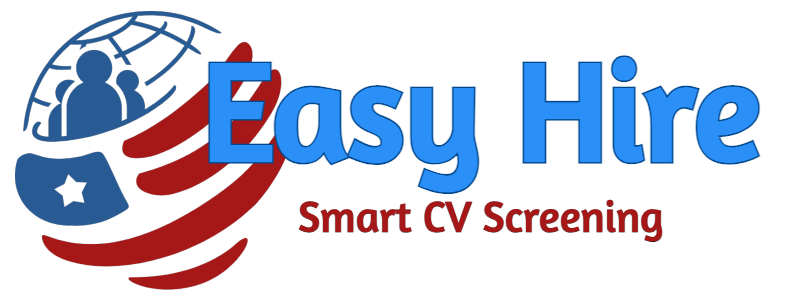The Ethics of AI in Recruitment: What You Need to Know
Ethical concerns and best practices when using AI in recruitment.
The Ethics of AI in Recruitment: What You Need to Know
Artificial Intelligence (AI) is transforming the recruitment landscape, offering unprecedented efficiency, scalability, and insights. From parsing resumes to predicting candidate success, AI-powered tools are streamlining hiring processes like never before. But with great power comes great responsibility. As AI becomes more prevalent in recruitment, ethical questions are emerging: Is AI truly unbiased? How does it impact diversity and fairness in hiring? And what safeguards are necessary to ensure ethical use?
This guide delves into the ethics of AI in recruitment, addressing key concerns and offering actionable best practices to help HR professionals and business leaders navigate this complex terrain.
What Is AI in Recruitment?
AI in recruitment refers to the use of algorithms, machine learning, and natural language processing to automate and enhance hiring processes. Common applications include:
- Resume Screening: AI can analyze resumes to shortlist candidates based on keywords, skills, and experience.
- Candidate Matching: Algorithms match job seekers to roles based on compatibility and suitability.
- Chatbots: AI-driven chatbots engage candidates, answer questions, and schedule interviews.
- Predictive Analytics: AI assesses candidate data to predict job performance and cultural fit.
While these tools can save time and improve efficiency, their ethical implications cannot be overlooked.
Why Are Ethics Important in AI Recruitment?
AI has the potential to revolutionize hiring, but it also poses significant ethical challenges:
- Bias and Fairness: If trained on biased data, AI systems can perpetuate or amplify existing prejudices. For example, an algorithm trained on resumes from a homogenous workforce may favor similar candidates, disadvantaging underrepresented groups.
- Transparency: Many AI systems operate as “black boxes,” making it difficult to understand how decisions are made.
- Privacy Concerns: AI tools often rely on vast amounts of personal data, raising questions about consent and data security.
- Accountability: Who is responsible if an AI system makes a discriminatory hiring decision?
Ethical AI recruitment ensures fairness, transparency, and accountability, fostering trust among candidates and stakeholders.
Key Benefits of Ethical AI in Recruitment
When implemented responsibly, AI can offer significant advantages:
- Reducing Bias: Ethical AI systems can be designed to minimize human biases, promoting diversity and inclusion.
- Enhancing Efficiency: Automating repetitive tasks allows recruiters to focus on strategic, high-value activities.
- Improving Candidate Experience: AI-driven tools like chatbots provide real-time engagement, improving the hiring journey.
- Data-Driven Decisions: AI analyzes patterns and trends to make more informed hiring decisions.
Challenges and Misconceptions
Despite its potential, AI in recruitment is not without challenges:
- Misconception: “AI will replace human recruiters.” In reality, AI complements human decision-making but cannot replace the nuance and empathy of human recruiters.
- Challenge: Ensuring data quality and fairness in AI training datasets.
- Concern: Balancing automation with the need for personal interaction in hiring.
Best Practices for Ethical AI Recruitment
To harness the benefits of AI while addressing ethical concerns, consider these best practices:
- Audit AI Systems Regularly: Ensure algorithms are free from bias and operate fairly.
- Promote Transparency: Use explainable AI tools that provide clear insights into decision-making processes.
- Protect Candidate Data: Implement robust data privacy measures and obtain explicit consent for data usage.
- Train Recruiters: Equip HR teams with the knowledge to use AI tools ethically and effectively.
- Diversify Data Sources: Use diverse datasets to train AI systems, reducing the risk of bias.
The Future of AI in Recruitment
The role of AI in recruitment will only continue to grow, with advancements like emotion AI and predictive analytics shaping the future of hiring. However, ethical considerations will remain at the forefront. By prioritizing fairness, transparency, and accountability, businesses can leverage AI to create a more inclusive and efficient hiring process.
Frequently Asked Questions (FAQs)
Does AI eliminate human bias in recruitment?
Not inherently. AI can reduce bias if designed and trained ethically, but it can also perpetuate bias if not properly managed.
How can I ensure my AI recruitment tool is ethical?
Regularly audit the system, ensure diverse training data, and promote transparency in decision-making.
Will AI replace human recruiters?
No. AI enhances recruitment by automating repetitive tasks, allowing recruiters to focus on relationship-building and strategic decisions.
Conclusion: Embrace Ethical AI in Recruitment
AI is a powerful tool that can transform recruitment, but its ethical use is critical to ensuring fairness and inclusivity. By understanding the challenges and implementing best practices, HR professionals and business leaders can harness AI’s potential while upholding ethical standards.
Ready to explore ethical AI solutions for your hiring process? Discover how Easyhireapp can help and take the first step toward a smarter, fairer hiring strategy.
How AI Improves Diversity Hiring
The Future of Recruitment Technology
AI recruitment ethics best practices
